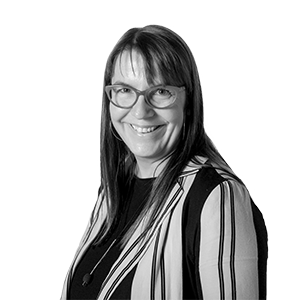

March is coming to an end, a month increasingly marked by the 8th, International Women's Day. And it doesn't surprise me, because there's a clear need to demand more equality and justice. That's why I don't want to let March go by without talking about it, and doing so in conjunction with data, which is key both to understanding the world and making decisions. We talked about this at Open Data Day 2025, organized by the Barcelona Open Data Initiative, and focused on open data technology in support of women's rights. We talked about codes, numbers, words, algorithms, and web portals. But above all, we talked about power. Every bit, every statistic, every set of information is imprinted with a perspective, and that perspective determines what is visualized and what is left in the shadows, or even what is forgotten. If women don't participate in the creation, analysis, and application of this data, the digital revolution will transmit the very biases of inequality of our reality, current and past. I hope not of the future.
The day began with an uncomfortable truth: misinformation is a poison, but open data can be its antidote. Lourdes Muñoz, director of Barcelona Open Data, made it clear: in a world where 73% of digitally excluded people are women (according to the UN), opening data without a gender perspective is like building houses without roofs. It's useless. Because if data isn't disaggregated by sex, inequalities become invisible, diluted into broad categories like "citizenship" or "users," and public policies continue to navigate in the dark.
During the roundtable discussions, a single invisible thread wove the debate: the lack of data on women is, in itself, an unacceptable blemish that leaves us in a bad light as a society. This blindness makes inequalities become naturalized, seemingly nonexistent. Open data is not just about transparency, but also about memory. Currently, Wikipedia, despite having almost half (49%) of its readers as women, contains less than 20% of biographies of women, and, furthermore, only 13% of its editors are women. Therefore, it's not just about opening up data, but also about conceiving and designing it. And interpreting it, of course, through lenses free of sexist bias.
Data is power, and whoever controls power controls the narrative. The question, then, is simple: Do we want a society in which women are subjects or objects of data? It's up to all of us to inject ethics, diversity, and memory. Because open data alone doesn't change anything. People do. And it's the people with egalitarian lenses—those who fill in data gaps, those who edit Wikipedia, those who demand statistics with women's names—who are rewriting the rules. As Lourdes Muñoz emphasized: "It's not about counting women, but about data that counts for women." A colossal challenge, but necessary for a truly inclusive democracy.
